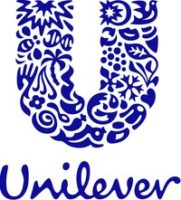The research—commissioned via Kantar—shows that less than 20% of those surveyed feel that ads are representative of wider society, and 71% feel that stereotypes in media are harming the younger generation.
Those from under-represented communities are impacted the most, the research pointed out: 55% of women of Asian heritage believe that stereotypes in advertising don’t represent them; 46% of men with a disability say they often see negative portrayals of people like them in ads; and 66% of LGBTQ+ people aged 18-34 feel that people from diverse backgrounds feature in ads ‘just to make up the numbers,’ according to a press release on the topic.
Tarana Burke, who created the ‘me too’ movement, commented on the findings in the press release: “Society and consumers are telling brands out loud that they are hurting. This is the moment for the industry to show it listens to marginalised voices. Underrepresented people need to not just feel included but be included. This is what will transform the messages we hear, the images we see, the products we use, and how each of these are created. The ad world must lend its talents to lead true change in society. It must listen to the people who are leading these lives and these movements, and ACT on what is heard. When anyone feels represented in the mainstream, it has the power to fulfil the fundamental human need to be heard—one that the industry can actually help deliver on.”
Related: Meet the New-and-Improved HABA Chosen Foods Docuseries to Highlight Hispanic Entreprenueurs Snack Brand Launches Pride Packaging for 3rd Annual Pride Bar
To address this, Unilever is doubling down on its 2016 commitment to Unstereotype. ‘Act 2 Unstereotype’ will make structural changes to the entire marketing process, aiming to provoke and integrate more diverse and inclusive thinking across every brand the company owns. Unilever will create an Unstereotype Charter for each brands, outlining the diversity commitments to be delivered through marketing; the company will work with diverse and under-represented groups both on-screen and off; and it will eradicate any digital alterations to photography with a 100% ban on changing models’ body shape, size, proportion, or skin color.Aline Santos, Chief Brand Officer and Chief Diversity and Inclusion Officer at Unilever, said: “If we want to see systemic change in society, we need to see systemic change in our industry. Act 2 Unstereotype helps brands create a generation free from prejudice. Inclusive marketing is not a choice anymore; we must act now.”










